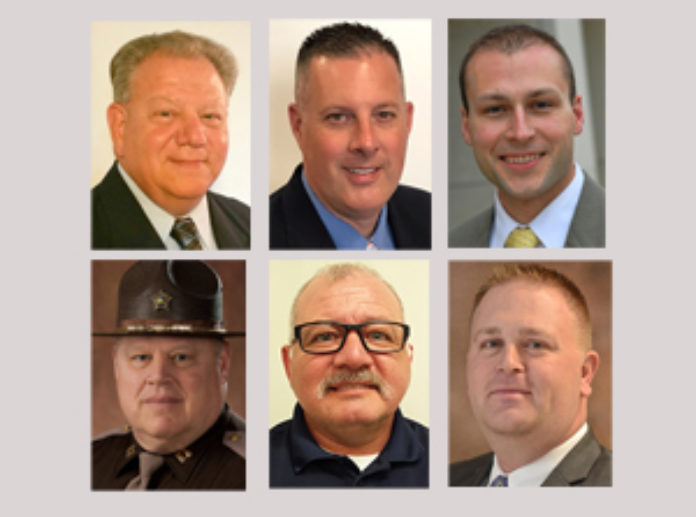When as many as 68 Republican precinct committee members gather Wednesday to choose a new sheriff for Kosciusko County, they’ll once again be flexing some unique political muscle that has helped shape county government in recent years.
In Indiana, political party caucuses are charged with the duty of filling an array of election positions for the two major parties when vacancies surface within their own party.
In Kosciusko County, where county government has been overwhelmingly dominated by Republicans for decades, the GOP caucuses have been used to fill four vacancies on the county council as well as openings for surveyor and coroner in the past five years.
Two weeks ago, Republican leaders met to fill a vacancy created after the unexpected death of county council President Bob Sanders. The selection of Kimberly Cates required six ballots and spanned two and a half hours.
But Wednesday’s caucus appears to carry even more intensity and significance as Republicans replace Aaron Rovenstine, who stepped down after being forced out of office following his sentence for a single felony count of intimidation. He originally faced 10 charges.
The controversy spanned 15 months and put a spotlight on the fractured relations between the sheriff’s department and Warsaw Police Department.
“It’s probably the most important caucus we’ve ever had,” said Kosciusko County Republican Party Chairman Mike Ragan.
The timing of the caucus is also driving interest, several officials say, because the winner will likely have an inside advantage for next year’s sheriff’s race. Already In some counties, potential sheriff’s candidates are preparing to run in 2018.
“If I were a candidate, I would love this” opportunity, said Andrew Downs, an associate professor of political science at Indiana Purdue Fort Wayne.
Downs notes that the caucus winner will have a chance to settle into office and enjoy the incumbent label without actually being “encumbered” with four years of experience that voters can consider.
They also have a chance to build up name recognition and represent the department in speaking engagements and other activities.
“It’s an incredible advantage,” Downs said.
Sue Ann Mitchell, a precinct committee member who sits on the county council and is a precinct committee member, said they are facing a “big weight on the shoulders.”
Interest in the decision is expected to attract a large crowd, and Warsaw Fire Chief Mike Wilson announced Monday that attendance inside the old courtroom of the courthouse will be limited to the first 120 people, with preference given to party officials, candidates and the media.
Six candidates vying for the post include:
• Jordan A. Foreman, a former Warsaw police detective.
• Joshua Spangle, a sergeant detective with the sheriff’s department.
• Louis W. “Bill” Brown, retired state police officer.
• W. Kelly Prater, assistant director of the county work release program.
• Kyle P. Dukes, a state police trooper.
• William “Rocky” Goshert, a former Kosciusko County sheriff who is serving as interim sheriff.
The caucus will begin at 7 p.m.
Ragan said normally 69 precinct committee members would cast votes, but he’s aware of one who will be unable to attend.
Mitchell said she believes that for some precinct committee members, their decision could come down to one factor: Did Rovenstine get a “raw deal,” or is the department corrupt and in need of a reset?
Some also view Wednesday’s decision as a choice between an “outsider” and an “insider.” Three of the candidates have not worked in the sheriff’s department and several have campaigned on what they perceive as a need for change.
“I hope we get it right,” Mitchell said. “I know people are torn both ways. I know people think it was a terrible thing that Aaron (was removed) and some people think it’s what should have happened.”
Even though she’s a longtime party insider, Mitchell said she said she wishes the choice could be made via a countywide election. “A lot of people don’t even know who the precinct committee people are to voice an opinion,” Mitchell said.
The role and power of precinct committee members is a holdover from the old days when party leaders wielded even more political influence, Downs said.
Downs points out that precinct committee members are party supporters who work in the trenches during elections and that their role in caucuses is one of the “perks” of their involvement.
Caucus members tend to be “conscious of party ideology” and also tend to be slightly more informed than some voters, he said.
He said he’d be willing to bet that the winner of the caucus process will be a “good” Republican.





